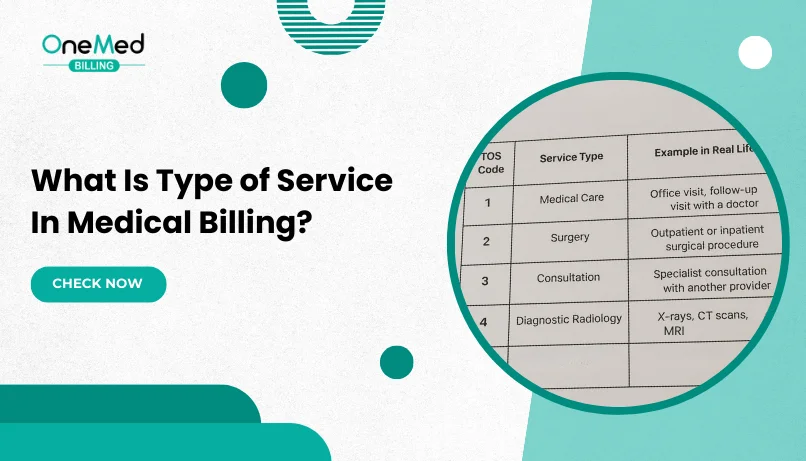12 Common Reasons Claims Get Denied
- August 7, 2025
- 0 Comments
- Denial Management
Claim denials continue to rise, creating real challenges for providers in 2024 and 2025. Medicare and Medicaid show similar patterns. According to the data from the Centers for Medicare & Medicaid Services (CMS) indicate that 15% or more of claims are denied on first submission in Medicare Advantage and Medicaid managed care. A study published in Health Affairs (2024) also reported that Medicare Advantage plans denied about 17% of initial claims, underscoring that denials are not limited to commercial insurers.
Industry trend reports confirm the upward shift. By late 2024, denial rates across providers averaged 11.8%, showing that 2025 continues to bring higher denial volumes and more pressure on billing teams to keep revenue flowing.
12 Common Reasons Claims Get Denied
Claim denials don’t happen by chance. In most cases, they come down to the same set of recurring issues that providers and billing teams face every day. Below are 12 of the most common reasons claims get denied, along with insights into how they impact your revenue cycle.
1. Eligibility and Coverage Not Verified at Time of Service
Claims often get denied simply because coverage wasn’t checked before the visit. A patient may hand over their insurance card, but if the plan has expired or their employer has recently switched carriers, the claim will come back unpaid. In many busy clinics, staff enter card details without logging into the payor portal. Weeks later, the denial shows up, leaving staff chasing corrections and patients frustrated by surprise bills.
2. Missing or Incorrect Patient Details
It doesn’t take much to trigger a denial. A single typo in the patient’s name, a wrong date of birth, or an outdated insurance ID is enough for the payor’s system to kick a claim back.
Most of the time, this happens at the front desk. Staff are checking in patients, answering phones, and rushing through data entry. Instead of confirming details in the portal, they rely on what’s on the card or what’s saved in the system from a past visit.
3. Out-of-Network Provider or Facility
Claims often get denied when care is provided by someone outside the patient’s insurance network. A patient may show up thinking their plan will cover the visit, but if the provider or facility isn’t in-network, the payor will reduce or deny payment.
This usually happens when referrals are made without checking network status, or when contract changes move a provider out of network without notice. The result is smaller reimbursements for providers and surprise bills for patients, which quickly erodes trust.
4. No Prior Authorization Obtained
Many denials happen because prior authorization wasn’t secured before the service. A provider may perform an MRI, a surgery, or prescribe a high-cost medication, only to have the payor reject the claim because approval was never logged.
This is common when staff assume an authorization isn’t needed, or when there’s a breakdown in communication between scheduling and billing teams. By the time the denial comes through, it’s too late, the service was already provided, the patient needs the care, but the claim won’t get paid. For providers, that means significant revenue loss, especially with expensive treatments.
5. Wrong or Incomplete Billing Codes
Claims often get denied because of coding mistakes. A CPT code may be outdated, an ICD-10 diagnosis may not match the procedure, or a modifier might be left out. Even small errors like these can cause the payor to reject the claim outright.
This usually happens when billing teams are under pressure to submit quickly, rely on old codebooks, or don’t have systems in place to catch mismatches. In some cases, payors may argue that the service wasn’t medically necessary simply because the diagnosis and procedure didn’t line up correctly.
6. Lack of Medical Necessity
A common reason payors deny claims is “lack of medical necessity.” This doesn’t always mean the patient didn’t need the service, it often means the documentation or coding didn’t show the payor why it was required.
For example, a provider may order a CT scan for a patient with ongoing headaches, but if the claim is coded with a generic “headache” diagnosis instead of something that shows the clinical need, the payor may reject it. In other cases, progress notes or supporting documentation might be missing, leaving the claim vulnerable to denial.
7. Bundling and Unbundling Errors
Some of the most avoidable denials come from coding errors tied to payor bundling rules. Payors often require certain services to be billed together under one code. If those services are billed separately, the claim will be flagged and denied. On the other side, if services that should be billed individually are grouped into one code, you risk underpayment.
This is called unbundling in medical billing, where providers split services that should have been reported as a single bundled code. This not only delays reimbursement but can also create compliance concerns if payors see it as intentional overbilling.
These errors usually happen when coders rely on outdated rules or when payor-specific bundling edits aren’t built into the billing system. For providers, the result is wasted time appealing claims and money left on the table.
8. Incorrect Use of Place of Service (POS)
Denials also happen when the wrong Place of Service (POS) code is used on a claim. These codes tell the payor where the care was provided, such as in a physician’s office, hospital, or telehealth setting. If the POS code doesn’t match the service or the payor’s rules, the claim can be denied or paid at a lower rate.
This often happens when providers offer the same service in multiple settings, like billing a procedure as “in-office” when it was performed in a hospital outpatient department. With the growth of telehealth, mistakes with POS codes have become even more common, especially when rules differ between payors.
9. Services Not Covered by the Insurance Plan
Another common reason for denials is when the service simply isn’t part of the patient’s benefits. What’s covered under one policy may be excluded under another. For example, cosmetic procedures, some brand-name medications, or experimental treatments often fall outside of coverage.
These denials are frustrating because the care may have been necessary or requested by the patient, but if the service isn’t listed in the plan, the payor won’t pay. In many cases, patients are just as surprised as providers, which leads to uncomfortable conversations and unexpected bills.
10. Claims Filed After the Deadline
One of the easiest ways to lose revenue is not sending claims within the claim filing time limits. Every payor sets its own deadline, and once that date passes, the claim gets denied. Some payors give you 90 days, others six months or even a year, but once the window closes, you can’t appeal.
These denials usually happen when paperwork is delayed, errors take too long to fix, or the billing team just doesn’t realize the deadline has passed. By the time the claim goes out, it’s too late and the payment is lost.
11. Duplicate Claim Submissions
Duplicate claims happen when the same service is billed more than once for the same patient, on the same date, by the same provider. Even if it’s an honest mistake, most payors will deny the second claim, and in some cases they may hold back payment on both.
This often happens when staff don’t see an update in the payor portal and assume the first claim didn’t go through, so they resubmit it. It also comes up during system changes, or when teams try to re-bill a denied claim without fixing the original issue.
12. Coordination of Benefits (COB) Errors
Denials also happen when there are mistakes in the coordination of benefits. This process decides which insurance plan is primary and which is secondary when a patient has more than one policy. If the billing team sends the claim to the wrong payor first, or if the information on file is outdated, the claim will almost always be denied.
This comes up often with patients who have employer coverage plus Medicaid, Medicare, or a spouse’s insurance. If the order of benefits isn’t set correctly, the claim bounces back and the billing team has to start over.
Conclusion
Claim denials are a common part of healthcare billing, but they don’t have to keep happening. Most denials can be avoided by checking patient details, using the right codes, verifying coverage, and submitting claims on time.
Fixing small issues early helps protect your revenue and speeds up payments. If you're seeing too many rejections, it may be time to improve your internal process or get support from a team that specializes in denial management services.
And if handling everything in-house feels overwhelming, working with a professional medical billing company can take the pressure off your team and ensure your claims are submitted clean, accurate, and on time. A trusted partner will also handle claim denials on your behalf, following up with payors, submitting corrections, and keeping your revenue cycle moving without extra strain on your staff.
Frequently Asked Questions
Find quick answers to common questions about this topic, explained simply and clearly.
What is the most common reason for claim denials?
The most common reason is missing or incorrect patient information, like a wrong name or insurance ID number. Even small typos can cause a claim to be rejected.
How can I avoid denials related to medical coding?
Use up-to-date CPT, ICD-10, and HCPCS codes, and make sure your coding matches the diagnosis and treatment provided. Regular staff training and billing software can also help reduce errors.
What happens if I submit a claim after the deadline?
Most insurance companies will deny late claims automatically. To avoid this, submit claims as soon as possible and keep track of each payor’s filing deadlines.
Why is prior authorization important?
Some services, like surgeries or specialty medications, require approval before treatment. If you skip this step, the insurer may not pay even if the care was needed.
What are denial management services?
Denial management services help healthcare providers track, analyze, and fix rejected claims. These services can prevent future denials and improve your overall revenue cycle.
Can a professional billing company help reduce denials?
Yes. A professional billing company has the tools, training, and experience to catch common errors before claims are submitted. They can also follow up on denials quickly and accurately.







Comments (0)